
This conference will take place face-to-face (Facultad de Estudios Superiores Zaragoza, UNAM - JC Bonilla, 66. Col. Ejercito de Oriente. CP. 09230. CDMX, Mexico) and remotely (the access link will be sent to registrants by email, the day before the event).
Teaching Family Therapy in the Family Therapy Residency Program at Universidad Nacional Autónoma de México FES Zaragoza
This conference aims to provide an overview of the proposals that have been developed in the teaching of family therapy in the postgraduate program in Psychology of the National Autonomous University of Mexico. The course of the program is mainly organized in such a way that the greatest number of hours of work is done within the framework of a professional practice in situ, so that the students find themselves in various contexts (hospital, center of health, etc). A feature of the program is that training is delivered through teaching the therapeutic models themselves as well as the cybernetic thought framework. Presentations will illustrate the process followed in each case to promote student competence in practice.
The speakers and their conference
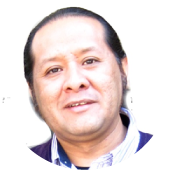
Pedro VARGAS AVALOS
Moderator
Teaching Systems Thinking in Family Therapy
The promotion of systems thinking is considered a necessary quality for the consolidation of conceptual skills in the practice of family therapy. However, there is no set approach on how to achieve this professional competence. A program is proposed that considers a series of experiences and a review of readings that together are guided by the original thought proposal of Gregory Bateson and his team from the research project conducted at the Veterans Hospital of Menlo Park. Added to these readings is a review of Bradford Keeney and his writings on explaining the process of change appropriate to therapeutic work.
- He holds a degree in Psychology from FES Zaragoza, UNAM and a Masters in Philosophy of Science from UAM Iztapalapa. PhD student in philosophy of science at UAM Iztapalapa.
- He trained in brief therapy at the MRI's Brief Therapy Center in Palo Alto, CA with continuing stints from 2009 to date.
- He is a professor at the Facultad de Estudios Superiores Zaragoza, UNAM. He has been attached to the field of clinical psychology since 1988. Coordinator of the field of clinical psychology of the psychology license from 2007 to 2018.
- Manager on the Zaragoza campus of the family therapy residence of the Master's program of the National Autonomous University of Mexico since 2019.
- He conducts research on the teaching of systemic therapy with an emphasis on brief therapy, on the historiography of systemic therapy with bibliometric methodologies, and on the design of situations for the teaching of psychology. with the use of mobile technologies for the formation of professional skills.
- He participates in international networks for the promotion of family therapy and works jointly with groups in the United States and Europe.
- He participates in the Mexican branch of the Brief Therapy Center.
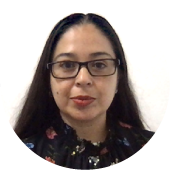
Clara Haydee SOLIS PONCE
Teaching brief therapy through problem solving
The teaching of brief problem-solving therapy has been refined by contemporary technological resources. Since its creation, this approach has used audio and then video recordings, intercommunication with the observers behind the mirror by telephone, review of the recordings as part of the preparation of the dossier. These are resources that have been enhanced, so their place in the oversight process is essential. This lecture will explore in detail the form of teaching with the use of these technological resources.
- She holds a degree in psychology, a master's degree in educational and family counseling and is preparing a doctorate in education.
- Professor of the License in Psychology and Family Therapy Residence at the Zaragoza Campus.
- Responsible for the social service program "brief psychological care for the general public" since 2010 that operates in the CUAS Tamaulipas of the FES Zaragoza UNAM.
- She trained as a brief therapist at the Mental Reseach Institute in Palo Alto, California from 2009 to 2019, completing several stays during this period.
- She is a professor and supervisor of brief therapy with participation in different universities in Chile, Paraguay, Argentina, Spain and the United States.
- She participates in the theoretical seminar and activities related to brief therapy in France.
- She is the author of several publications in Spanish and English on brief problem-solving therapy.
- She has directed more than 30 processes of the Bachelor of Psychology at FES Zaragoza, including theses, dissertations, social service reports and professional activity reports.
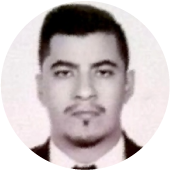
Giovanni MARTÍNEZ ORTEGA
The Teaching of Systemic Family Therapy in Milan
In the development of the Milan systemic therapy model, different moments of development were distinguished. First with the four originals and then in the different lines developed on the one hand by the research line of Mara Selvini Palazzoli and on the other hand by the more didactic line of Luigi Boscolo and Gianfranco Cecchin. This second line is the starting point for the forms of teaching that will be presented in this congress.
- Relational and dialogical systemic therapist, with the Milan Aproach approach.
- He holds a master's degree in family therapy from the National Autonomous University of Mexico.
- He is professor and supervisor of the family therapy residence of the Facultad de Estudios Superiores Zaragoza of UNAM and professor of the degree in psychology of this same faculty.
- He trained in "Clinical Supervision" at the Scuola di psicoterapia sistémico-dialógica of Paolo Bertrando (Bergamo-Italy).
- Diploma in "Diagnosis and Therapeutic Change" with the model of semantic family polarities from the European Institute of Systemic-Relational Therapies (EIST) taught by Valeria Ugazio.
- Diploma in "Training for the development of clinical skills" in the systemic-dialogical model of Bergamo-Italy.
- International Online Diploma in "Contemporary Voices and Practices in Systemic-Rational Psychotherapy".
- He has participated in courses and seminars with different therapists such as Antonio Caruso from Centro Panta Rei di Roma, Laura Fruggeri from Centro Bolognese di terapia della Famiglia, Pietro Barbetta from Centro Milanes di Terapia della Famiglia, Marcelo Pakman, Jaakko Seikkula and Peter Robert.
- He has collaborated in some research projects: "Psycho-environmental model of the coercive family", "Workshop on the use of Android tablets for the seminar modality in the clinical and health psychology program" and "Production of teaching materials from theory and intervention". The case of observational methodology".

Oscar ARVIZU LOPEZ
The Teaching of Systemic Family Therapy in Milan
In the development of the Milan systemic therapy model, different moments of development were distinguished. First with the four originals and then in the different lines developed on the one hand by the research line of Mara Selvini Palazzoli and on the other hand by the more didactic line of Luigi Boscolo and Gianfranco Cecchin. This second line is the starting point for the forms of teaching that will be presented in this congress.
- He holds a master's degree in clinical psychology with residency in family therapy from the faculty of psychology at UNAM.
- Degree in Psychology, graduated from Facultad de Estudios Superiores Zaragoza, UNAM.
- He obtained an international diploma in "dialogical systemic therapy" at the Centro Bolognese di Terapia della Famiglia (relational systemic therapy) and a diploma in systemic therapy.
- He has 18 years of experience as a clinical psychologist in private practice and in public and private institutions (Centros de Integración Juvenil, Teletón, Secretaría de Salud del Gobierno de la CDMX) directing his work to the attention of communities in situation of vulnerability, creating a space where the consultant finds meaning and a greater understanding of their reality, to be translated into actions, emotional well-being and new ways of thinking.
- At the same time, in private universities, he has taught bachelor's, specialty and master's courses, emphasizing the active participation of students in the learning process, which promotes their professional practice at the end of their studies. .
- Currently, he is part of the teaching staff of the Master's Residence in Family Therapy of the Facultad de Estudios Superiores Zaragoza, UNAM, and provides supervision for the Instituto de la Mujer del Municipio Nezahualcóyotl.
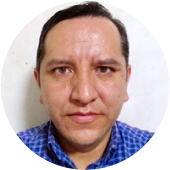
Gerardo Benjamin TONATIUH VILLANUEVA OROZCO
The Teaching of Strategic Family Therapy by Jay Haley
It is important to recognize that the main innovator in the teaching of family therapy was Jay Haley. He was the first to engage in teaching and clinical supervision for the process of training family therapists. The use of the Gesell camera as a teaching tool and other resources such as intercommunication with the supervisor behind the mirror via a computer, showed a teaching methodology that was quickly followed in the various therapist training centers family. This lecture will showcase Jay Haley's legacy in a postgraduate training program.
- Professor at the bachelor's and master's level, therapist and researcher at the National Autonomous University of Mexico.
- Professional training: Bachelor's degree in psychology, Diploma in couple therapy with systemic approach, Master's degree in psychology with residency in family therapy and Doctorate in social and environmental psychology.
- Lines of research or areas of specialization: Problems of communication and interaction in the couple, the family and their repercussions on mental health.
- He has participated in several national and international congresses, has collaborated in research projects and has written book chapters on the couple.
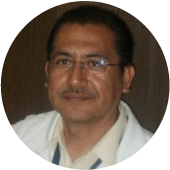
Eduardo CORTES MARTÍNEZ
The videoreflection process in family therapy
Video-reflection is the process that causes behavioral differences in the clinical case (individual, couple or family), it also generates a set of visual and linguistic codes to decipher and observe their verbal and non-verbal behavior, as well as their interactions and the roles they play in the family system, this generated from the contribution of Tom Andersen.
- Eduardo Cortés has been a professor for 40 years at the Facultad de Estudios Superiores Zaragoza. UNAM.
- In his career in psychology, he has developed the research project "Process of video-reflection in family therapy” since 1995, seeking to describe and demonstrate, theoretically and methodologically, as a tool that produces differences in the family system,
- Specialization in university education,
- Various national and international diplomas in family therapy, couples therapy, Ericksonian hypnosis,
- Advanced Brief Therapy Course, Mental Research Institute. Palo Alto. USA California.
- Master in Neurolinguistic Programming. University of Santa Cruz, California. USA.
- Master in Clinical Psychology. UNAM.
- Master in Family Therapy CEFAP. Mexico




